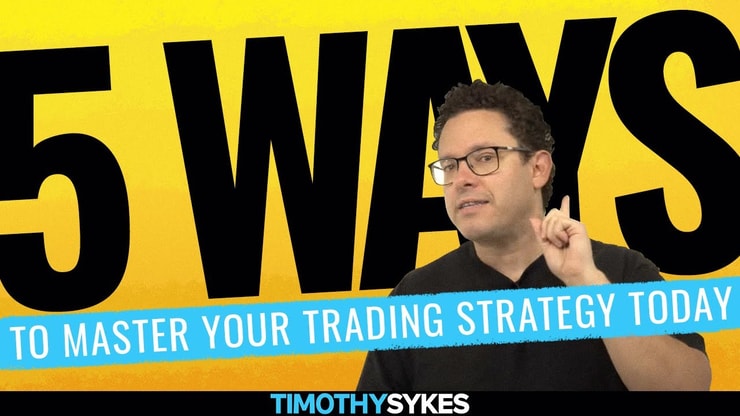Paul Tudor Jones is one of the most well-known and respected traders in the world. He made a name for himself in the financial industry with his ability to predict and capitalize on macroeconomic events.
Jones rose to prominence in 1987 when he famously predicted the Black Monday stock market crash, netting significant returns by shorting the market. With over four decades of experience, Jones is known for taking advantage of opportunities across a broad range of asset classes, including stocks, bonds, commodities, and currencies.
Read this article because it discusses Paul Tudor Jones, his macro trading strategy, and how he built his wealth, providing actionable insights for all traders.
I’ll answer the following questions:
- Who is Paul Tudor Jones?
- Is Paul Tudor Jones legit or a scam?
- What trading strategy is Paul Tudor Jones famous for?
- How did Paul Tudor Jones get started in trading?
- What are the early trading successes of Paul Tudor Jones?
- Which stock picks are on Paul Tudor Jones’ watchlist?
- What is Paul Tudor Jones’ net worth?
- Does Paul Tudor Jones have a blog, website, or social media accounts?
Let’s get to the content!
Table of Contents
Who Is Paul Tudor Jones?
For traders, Jones represents the pinnacle of discipline and adaptability. His ability to navigate fluctuating markets speaks to the importance of understanding the macroeconomic environment when making trading decisions.
Jones founded the hedge fund Tudor Investment Corporation in 1980, which has consistently generated significant returns under his leadership.
Is Paul Tudor Jones Legit or a Scam?
Let’s be clear—Paul Tudor Jones is as legit as they come. His trading career spans over four decades, and his reputation is solid. His early success, especially his foresight during the 1987 market crash, has cemented him as a legend in the trading community.
Jones is also known for his transparency in sharing his experiences through interviews and articles, offering insights into his trades, strategies and the importance of discipline in trading.
Jones is also highly regarded in the finance world because of his philanthropic work. He co-founded the Robin Hood Foundation, which focuses on fighting poverty in New York City.
Do you want to master your trading strategy like Paul Tudor Jones did? Get started by watching my video below.
What Trading Strategy Is Paul Tudor Jones Famous For?
Jones is most famous for his macro trading strategy, which involves making investment decisions based on analysis of the global economy.
His strategy revolves around forecasting economic events, understanding market trends, and taking calculated risks across various asset classes. Unlike many traders who focus solely on stocks, Jones employs asset allocation and diversifies across bonds, currencies, and commodities to hedge risk and find opportunities.
Paul Tudor Jones’ approach has similarities with Richard Dennis’ trend-following strategy. While Dennis focuses on commodities and futures markets, Jones takes a broader view of macroeconomic trends.
Both traders have demonstrated the power of understanding market cycles and applying disciplined risk management. The success of traders like Dennis and Jones reveals the potential in systematic approaches to the market.
For more information about Richard Dennis’ trading strategy, check out my article.
Macro Trading
His most notable strategy is macro trading, where he takes positions across various asset classes—stocks, bonds, currencies, futures, and commodities—based on his analysis of global economic trends.
Jones’ ability to look at the bigger picture—macro trends—is what sets him apart. This involves analyzing global economic trends like inflation, interest rates, and geopolitics to predict market movements.
For instance, in 1987, Jones analyzed global stock market data and identified that markets were in a bubble. This allowed him to successfully short the market, making substantial profits.
How Did Paul Tudor Jones Get Started?
Paul Tudor Jones’ journey in the trading world started after he graduated from the University of Virginia in 1976. He worked briefly as a clerk on the trading floor of the exchange before transitioning into trading for himself.
His first major success came early, but it wasn’t without its challenges. He learned the ropes through personal experience, much like any trader starting out, by taking calculated risks and learning from losses.
What Are the Early Trading Successes of Paul Tudor Jones?
Jones’ early trading success was marked by his ability to read the markets with precision. One of his first significant wins came in the early 1980s when he bet against the market just before the 1987 crash.
His strategy, rooted in technical analysis and understanding of market psychology, earned him a 200% return during one of the most volatile periods in modern market history. This early success helped him solidify his reputation and laid the foundation for what would become Tudor Investment Corporation.
To become a successful trader like Jones, you’ll need a robust trading platform that provides charting, technical indicators, stock screening, and more.
When it comes to trading platforms, StocksToTrade is first on my list. I helped to design it, which means it has all the trading indicators, news sources, and stock screening capabilities that traders like me look for in a platform.
Grab your 14-day StocksToTrade trial today — it’s only $7!
Which Stock Picks Are on Paul Tudor Jones’ Watchlist?
Paul Tudor Jones doesn’t just stick to individual stocks. His watchlist often includes a broader mix of asset classes.
He’s known for monitoring economic indicators and making decisions based on macroeconomic trends, so his investments are likely to include sectors that benefit from those trends. Stocks that track inflation, rising interest rates, or geopolitical tensions might be his target.
As a hedge fund manager, Jones often keeps a close eye on both U.S. and international markets. His watchlist can vary based on economic cycles.
Paul Tudor Jones’ diversified macro trading approach is also reflected in Jim Rogers’ global market analysis. Rogers, a co-founder of the Quantum Fund, believes in understanding long-term global trends.
Like Jones, Rogers identifies opportunities across different asset classes and regions, focusing on how global events shape markets. Understanding these perspectives provides a well-rounded view of macro trading.
Read my article to learn more about Jim Rogers’ market approach.
What Is Paul Tudor Jones’ Net Worth?
As of 2024, Paul Tudor Jones’ net worth is estimated to be around $7 billion. His wealth has been accumulated through decades of successful investing, particularly in macro trading. He has consistently generated profits for both his hedge fund and his personal investments.
His net worth isn’t just a result of his financial acumen but also his ability to adapt to shifting markets, making strategic investments across different asset classes such as stocks, bonds, currencies, and commodities.
For traders looking to follow in his footsteps, note that Jones’ success stems from a combination of sharp market analysis, discipline, and diversification.
Building wealth in trading is less about striking it rich on a single trade or speculation and more about steady, long-term growth across a diversified portfolio.
Trading isn’t rocket science. It’s a skill you build and work on like any other. Trading has changed my life, and I think this way of life should be open to more people…
I’ve built my Trading Challenge to pass on the things I had to learn for myself. It’s the kind of community that I wish I had when I was starting out.
We don’t accept everyone. If you’re up for the challenge — I want to hear from you.
Apply to the Trading Challenge here.
Trading is a battlefield. The more knowledge you have, the better prepared you’ll be.
Is macro trading part of your trading toolkit? Write “I’ll keep it simple Tim!” in the comments if you picked up on my trading philosophy!
More Breaking News
- How Castellum’s Strategic Wins Propel Their Stock
- From Startups to Skies: Archer Aviation’s Bold Moves Elevate Its Stock Position
- AMED Stock: Breaking Down the Surprising Surge and What’s Next for Investors
FAQs About Paul Tudor Jones
How Old Is Paul Tudor Jones?
Paul Tudor Jones was born on September 28, 1954. As of 2024, he is 70 years old. Despite his age, Jones remains active in trading and philanthropy, continuing to provide valuable insights into markets and economics.
Does Paul Tudor Jones Have a Blog or Website?
Jones himself doesn’t maintain a personal blog or website. However, his hedge fund, Tudor Investment Corporation, does provide regular market updates and economic insights. You can find more about his views in interviews, financial news outlets, and articles that feature his commentary on market trends.
Does Paul Tudor Jones Have a TikTok, YouTube, or IG Account?
Jones is not active on TikTok, YouTube, or Instagram — he does have an X/Twitter account. His interviews and speeches are often uploaded by third-party channels, providing insights into his strategies and market perspectives.
Does Paul Tudor Jones Offer a Course?
No, Paul Tudor Jones does not offer any trading courses or investment advice. For traders looking to learn from successful investors, it’s better to study his market insights and macro trading strategies rather than expect any formal course from him.



Leave a reply